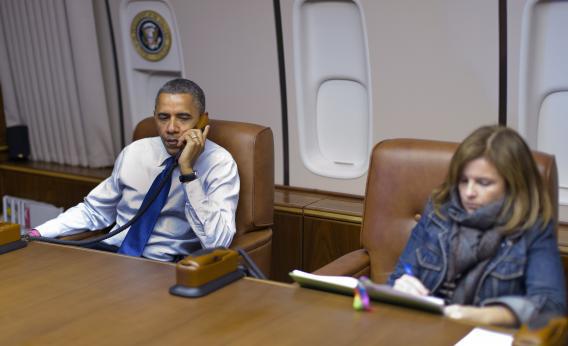Annie Lowrey writes that the Obama administration has appointed about as many women to high office as the Clinton administration did. Her husband, Ezra Klein, notes that this is actually a kind of regression. When Clinton was in office, there were very few women with relevant experience, so it took a lot of very active seeking to move the ball forward. The Obama administration gets to take advantage of the fact that Clinton’s efforts have left him with a deeper pool to choose from. There are also more women serving in Congress and as governor in the Obama era, further deepening the bench. But as Klein notes, we’ve had a series of situations—he notes Michèle Flournoy at the Defense Department and Lael Brainard at the Treasury Department—where there was a logical groundbreaking woman candidate who got passed over for a man who seemed less qualified in a conventional sense.
If Larry Summers get the Federal Reserve chair job over Janet Yellen, that’ll be a similar case. Not that Summers or Chuck Hagel or Jack Lew are unqualified for their jobs, exactly. It’s just that they’re all slightly more of a reach than moving a woman up the chain of command would have been. Another case one might mention is that when Summers left his job as national economic adviser, the post went to Gene Sperling (who’s unquestionably well-qualified; he’d done the job for Bill Clinton already) rather than to deputy national economic adviser Diana Farrell.
But the ultimate irony is in the response the White House gave to Lowrey:
“The president’s commitment to diversity is second to none, and his track record speaks to it,” Alyssa Mastromonaco, the deputy chief of staff, said in an e-mail message. “This is a man who has appointed women as national security adviser, as White House counsel, as budget director and to lead the task of implementing our single most important domestic policy accomplishment,” namely Mr. Obama’s health care law. “This president has single-handedly increased the diversity of our courts, and he will continue to select from a field of highly qualified and diverse candidates for all federal posts.”
Mastromonaco was made deputy chief of staff on Jan. 27, 2011, serving under William Daley. When Daley stepped down about a year later, he was replaced by Jack Lew, the director of the Office of Management and Budget. When Lew stepped down after a year of service, he was replaced by Denis McDonough, the deputy national security adviser. Both Lew and McDonough seem to me to have done quite well at their jobs and improved White House management from where it was in the Rahm and Daley eras. But both times the job went vacant, the chance existed to give the job to a woman for the first time ever. And the chance wasn’t taken, even though “promote the deputy chief of staff to chief of staff” seems a lot more logical than “promote the deputy national security adviser to chief of staff.” Then Mastromonaco is sent out there to deliver the talking points about how aggressive the administration has been at promoting women.
